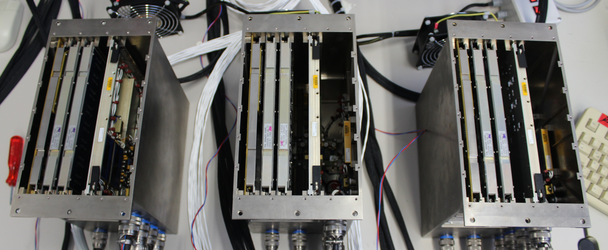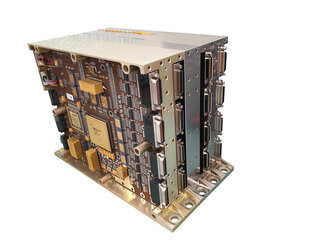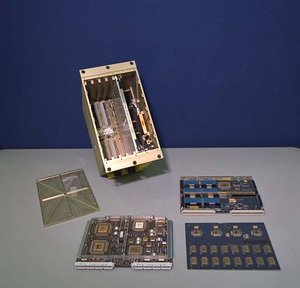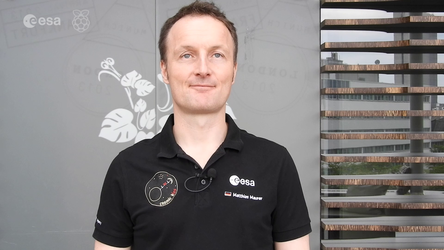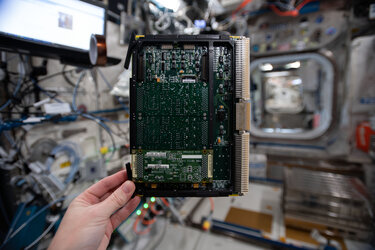

Data Management System (DMS) computer
The Data Management System (DMS) computers in the Russian Zvezda module were built over 20 years ago by what is now Airbus. Two fault-tolerant computers collect data and provide navigation, communications and operations for the Russian segment.
These are required for International Space Station operations, and a sudden breakdown could lead to catastrophic consequences. To ensure continuity three units work in parallel with two active and one standby to take over if one fails. A fourth computer is kept as spare that is used as soon as one of the computers in active duty has problems.
In January 2019 an older board was replaced with new stock. At that time cosmonauts could confirm that the computer had survived the operation but were not yet certain that it was fully fit. Crew time on-orbit is scarce and the teams had therefore planned to wait for the next computer failure before installing the computer with the heart transplant and fully check it. Last month one of the old computers had problems and so it was removed and replaced with the unit that had undergone its heart transplant.

